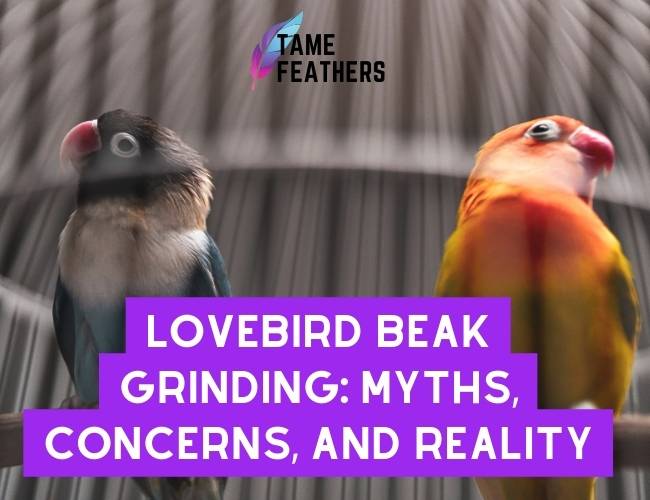Are you interested in finding out more about lovebirds? Are you curious in the sleeping habits of these adorable little birds? You’re in luck, then! We’ll solve the riddle of lovebird sleeping habits in this essay.
We’ll talk about the significance of these birds getting enough sleep as well as their fascinating sleeping patterns.
So, if you’re interested in learning more about these amazing creatures, stay reading!

- Do Lovebirds Sleep At Night?
- How Long Do Lovebirds Sleep For?
- Where Do Lovebirds Prefer To Sleep?
- What Happens If You Disturb A Sleeping Lovebird?
- Can Your Pet Bird Have Too Much Sleep?
- Are There Any Signs That Your Lovebird Isn't Getting Enough Rest?
- Have You Tried This Gourmet Parrot Food?
- We Thought You Might Want To Know This About Lovebirds… 😊
Do Lovebirds Sleep At Night?
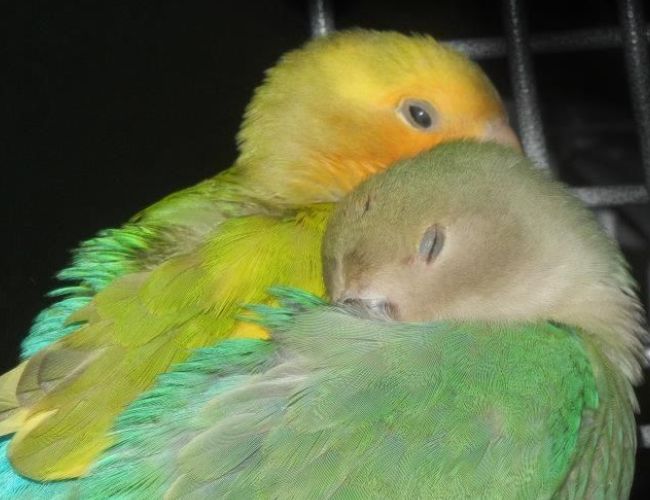
Lovebirds are active during the day, but like all birds they need to sleep at night in order to restore their energy and keep their bodies functioning.
Generally speaking, lovebirds will roost together in pairs or small groups at night on a perch.
They may also use nesting boxes for additional comfort and safety when sleeping.
During the night, lovebirds will remain still and silent for hours at a time as they enter into a deep state of restorative sleep.
How Long Do Lovebirds Sleep For?
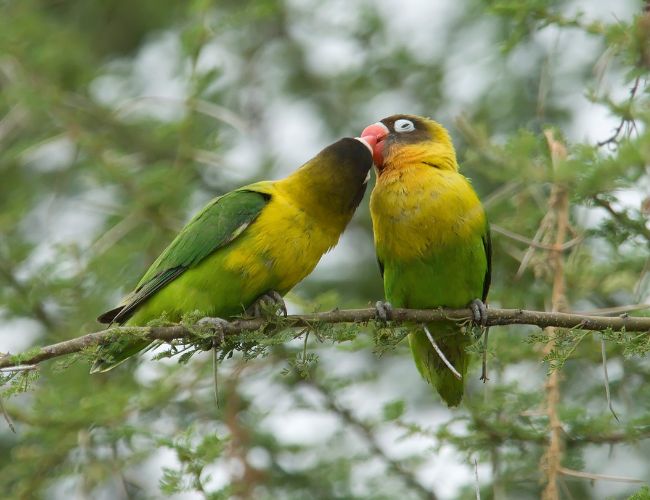
Most experts agree that lovebird species have similar sleeping needs to other pet birds such as parakeets or cockatiels.
This means that they typically require around 10-12 hours of uninterrupted sleep each night in order to stay healthy and mentally alert during the day.
Although it is possible for them to adjust this amount slightly if necessary by providing more sunlight exposure throughout the day.
Where Do Lovebirds Prefer To Sleep?
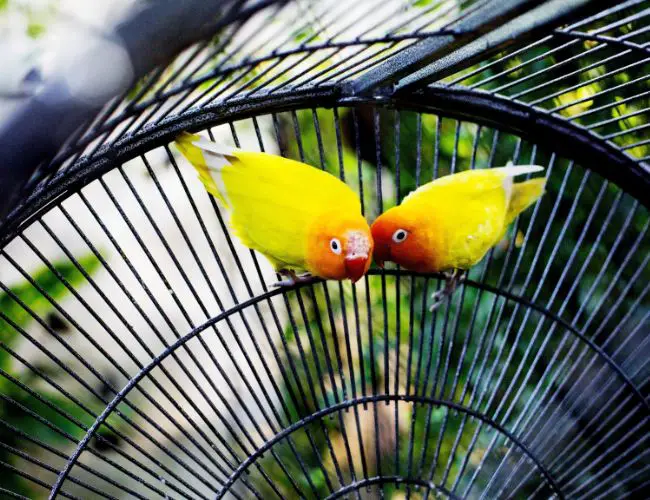
Lovebird owners should provide their pets with an appropriate area for nighttime sleeping. Preferably, away from bright lights which could disturb them while trying to rest.
A safe spot can be created using bird cages or aviaries with perches placed near windows where natural light can flow through without being too intrusive.
Alternatively, some owners opt for special lighting systems which provide dimmed illumination instead of leaving the cage dark if preferred.
What Happens If You Disturb A Sleeping Lovebird?

It’s important not to wake your lovebird suddenly because it can cause anxiety and stress which might lead to aggressive behavior over time.
Instead, you should slowly introduce yourself before making any sudden movements so as not frighten them out of their slumbering state.
Can Your Pet Bird Have Too Much Sleep?
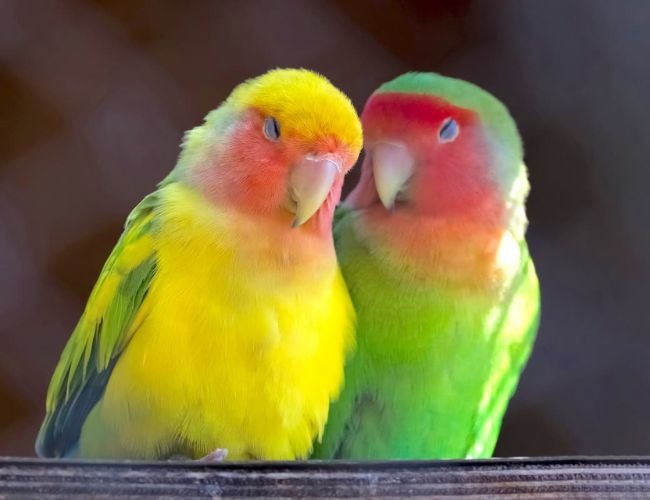
While getting sufficient amounts of restful sleep is essential for pet birds like lovebirds, it’s important not let them become overly sedentary either.
It is especially true during daylight hours when there are plenty activities that both you and your feathered friend can enjoy together.
Therefore, striking a balance between activity time and naptime is crucial in keeping your pet bird healthy both physically & mentally.
Are There Any Signs That Your Lovebird Isn’t Getting Enough Rest?
If your beloved feathered companion isn’t getting enough quality shut eye then it’s likely you’ll start noticing signs such as:
- increased irritability,
- loss of appetite,
- lethargy,
- feather plucking, etc.
In these cases its best practice take action immediately by consulting an avian vet who has experience treating pet birds.
Have You Tried This Gourmet Parrot Food?
We get so much good feedback on these Bistro Parrot Food packs! Our readers feathered friends are absolutely loving it! The best part is, it is suitable for all birds and parrot-types. Parakeets, Cockatiels, African Greys, etc. Check it out…
[amazon box=”B086KLFSZQ”]
We Thought You Might Want To Know This About Lovebirds… 😊
do lovebirds need to be in pairs
peach faced lovebird lifespan
why do lovebirds die suddenly



